A child’s diet plays a crucial role in their overall health, including the health and appearance of their skin. Just as a balanced diet supports growth and development, it also contributes to a clear and glowing complexion.
Key nutrients for healthy skin: #
- Vitamins: Vitamin A aids in skin cell production and repair. Vitamin C is vital for collagen synthesis, which maintains skin elasticity. Vitamin E acts as an antioxidant, protecting the skin from damage.
- Minerals: Zinc supports skin healing and immune function, reducing the risk of infections. Selenium also functions as an antioxidant, working alongside Vitamin E.
- Healthy fats: Omega-3 fatty acids found in fish and nuts help maintain skin hydration and reduce inflammation.
- Water: Adequate hydration is essential for plump, healthy-looking skin.
Foods that can negatively impact skin: #
- Sugary drinks and snacks: Excess sugar can lead to inflammation and acne breakouts.
- Processed and fried foods: These often contain unhealthy fats and can contribute to skin problems.
- Excessive dairy: Some studies suggest a link between dairy consumption and acne.
Tips for promoting healthy skin through diet: #
- Encourage a variety of fruits and vegetables: These provide essential vitamins, minerals, and antioxidants.
- Include healthy fats: Incorporate foods like avocados, nuts, and fatty fish into your child’s diet.
- Limit sugary and processed foods: Offer healthier alternatives like fruits, vegetables, and whole grains.
- Ensure adequate hydration: Encourage your child to drink plenty of water throughout the day.
Remember: Consistent healthy eating habits, along with good hygiene practices, will help your child maintain healthy and radiant skin. If you have any concerns about your child’s skin health, consult a pediatrician or dermatologist for further guidance. Sources and related content
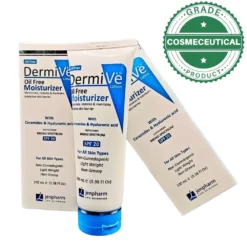 Lotion for Oily Skin - DermiVe Oil-Free Moisturizer SPF 20
₨ 998
Lotion for Oily Skin - DermiVe Oil-Free Moisturizer SPF 20
₨ 998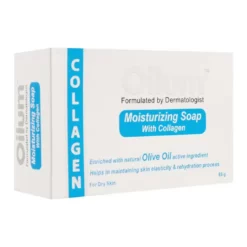 OILUM MOISTURIZING SOAP 85g
₨ 1,062
OILUM MOISTURIZING SOAP 85g
₨ 1,062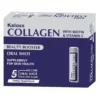 Vitamin with Collagen - Glow Up Beauty Booster | Collagen, Biotin & Vitamin C | 30ml
Rated 4.67 out of 5(6) ₨ 1,700
Vitamin with Collagen - Glow Up Beauty Booster | Collagen, Biotin & Vitamin C | 30ml
Rated 4.67 out of 5(6) ₨ 1,700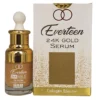 Everteen 24K Gold Serum (30ml) - Collagen Booster for Radiant, Youthful Skin| derma.pk
Rated 4.55 out of 5(11) ₨ 3,275
Everteen 24K Gold Serum (30ml) - Collagen Booster for Radiant, Youthful Skin| derma.pk
Rated 4.55 out of 5(11) ₨ 3,275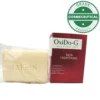 OXIDO-G SKIN LIGHTENING FACE AND BODY SOAP 100g
Rated 4.40 out of 5(10) ₨ 450
OXIDO-G SKIN LIGHTENING FACE AND BODY SOAP 100g
Rated 4.40 out of 5(10) ₨ 450






